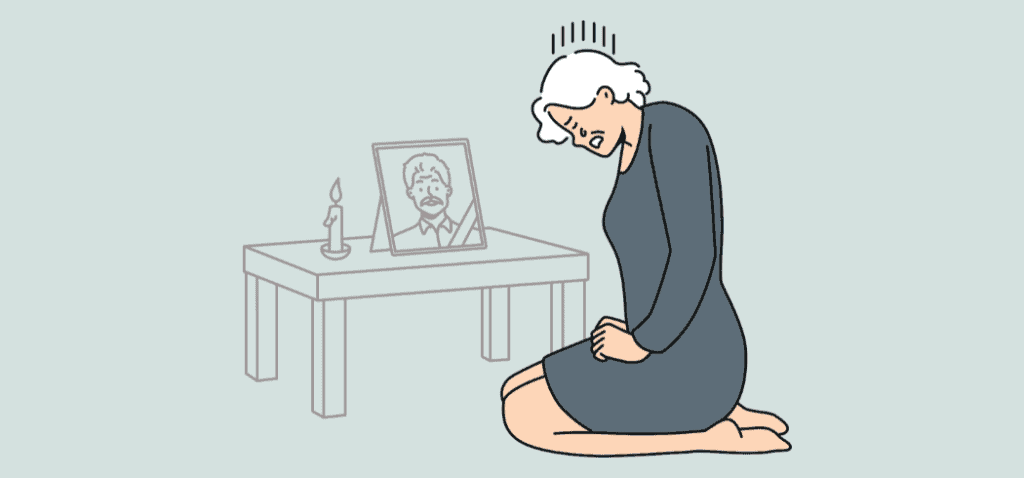The death of our loved ones is such a difficult time for all of us, and the wordage we choose to use when talking about death should be treated delicately. But I know it’s not always as straightforward for some people.
One term I see often used when referring to someone who has died is “late.” I’ll discuss using this term in relation to death and touch a bit on its origins.
What Does the Term ‘Late’ Mean in Death?
When we use the term late, which means dead, before someone’s name, we show that they’ve passed away, aka is no longer with us. It’s a respectful way of acknowledging that they’re no longer here among the living and that their time on this earth has ended.
We usually use it as a sign of respect for the deceased because it’s considered a formal and polite way of talking about it. Saying “my late father” sounds far better and less harsh than “my dead father.”
Why Do We Use the Term ‘Late’ for Death?
We use the term “late” to express the fact that someone has moved on to the next stage of existence. In certain cultures, it’s believed that the deceased’s soul remains here with the living for a short time after their death, so using the term “late” is a way of acknowledging this gentle transition to the afterlife.
What Is the Origin of Using ‘Late’ Before Names in Death?
We all know that “late” has and always will mean being behind or running behind schedule on something. We also use it to describe being late in a menstrual cycle. But some time in the 15th century, we adapted the term to also mean someone who has recently died.
How Do You Write ‘Late’ After the Death of Someone?
When we write about someone who’s recently passed away, we need to be respectful and appropriate and put the term “late” before their name.
“The late Dr. Susan Clark made significant contributions to cancer research in her short but impactful career.” This sentence implies that Dr. Susan Clark has recently passed away.
Sentence Examples of How to Write ‘Late’ After the Death of Someone
- Even though a long period of time has passed, the late President John F. Kennedy is still known for his inspiring speeches and leadership during a difficult time in American history.
- I was so heartbroken to hear about the passing of my friend’s late husband.
- The late musician Prince was a musical icon who helped shape my musical interests since I was a kid.
- Our thoughts are with the family of the late actor Chadwick Boseman, who passed from cancer after filming the iconic Black Panther movie.
- The late author Toni Morrison was a trailblazer in the literary world. Her works still continue to inspire readers and writers alike around the world. She’s one of my idols.
- We wouldn’t have iPhones without the visionary late Steve Jobs.
- It was an intimate gathering as our loved ones paid their final respects to my late father.
- The museum exhibit featured artwork by the late Vincent Van Gogh, showcasing his beautiful, unique style and creativity.
- The death of the late Ruth Bader Ginsburg was felt all over the internet and was a massive loss to women’s rights advocates around the world.
- A legendary basketball player, the late Kobe Bryant, had an impact on the sport that will be felt for years to come.
Be Respectful and Use ‘Late’
So, if you ever have to write a eulogy or give a speech at a funeral, memorial, etc., refer to the person who died with the word late in front of their name. It shows respect and is the proper way of stating it.



Comments are closed.